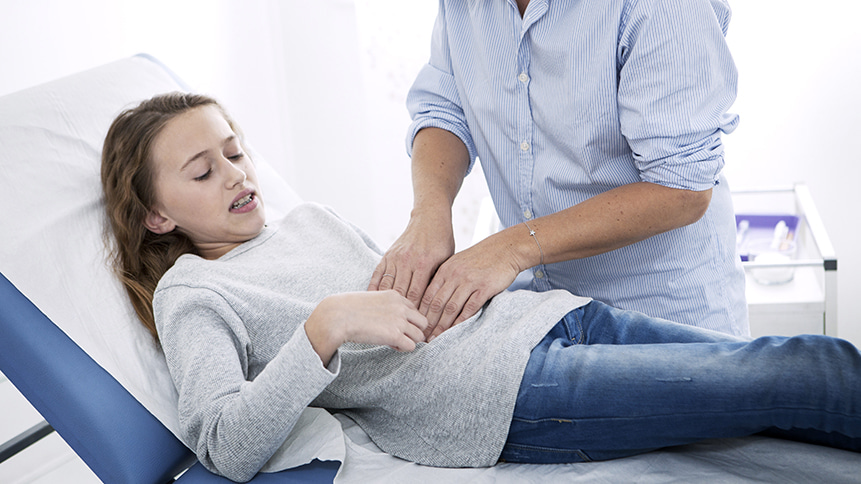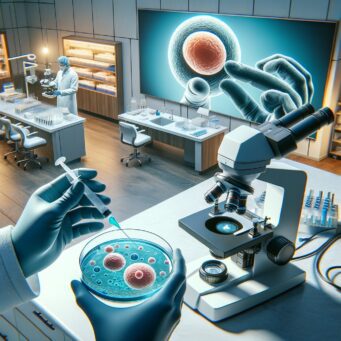
The day I became a woman was the same day my infertility journey began. My period started in a hospital, and ended in one. I was in the ER the first day of my first cycle, and I had my period the day my uterus was removed 19 years later. I have no biological children.
I was 12 years old when my mother took me to the ER because I woke up in the middle of the night bleeding heavily with large blood clots. I had my first pelvic exam, by a male physician, at 12 years old. In every other way I was still a little girl.
I was referred to a gynecologist by my pediatrician, whom I had to see yearly into my adult life. I had no idea what was wrong with me but the doctor seemed to. I followed my mother around, and we did what the doctor told us. I was put on different types of birth control over the years to control my hormones and heavy bleeding. No reasons were shared. We were told that we were “keeping things under control.”
When I was still a young teenager, I asked the doctors if I would have issues having a baby when I was ready. I was always told no, or he or she didn’t believe so. I wish the doctors would have provided me with more information. I would have asked my parents to help me more—get more opinions, more tests if possible.
I was in extreme pain during every cycle. There were cycles where I would bleed for more than thirty days at a time. I would have cramps that would keep me in bed and would feel like a sharp knife stabbing me in the abdomen. The pain would shoot down my legs. How is this something doctors could just skip over and say is normal?
As uncomfortable as it was, I believed that everyone was doing the best they could for me. I really didn’t know if there were remedies for what I was going through, didn’t think I could question the authorities around me.
I had my first pelvic exam, by a male physician, at 12 years old. In every other way I was still a little girl.In my early twenties, I got married. I was on and off birth control during our entire relationship, but never got pregnant. I really didn’t think much about it, because we weren’t actively trying to start a family. Our divorce, when I was 25, hit me hard.
By that time, I did have one general doctor tell me I had endometriosis. She wrote it down on lab results I had done for a yearly exam and we had discussed my heavy periods. I should have followed that clue, but I didn’t. I didn’t take it seriously because she wasn’t my gynecologist. Why wouldn’t my gynecologist tell me something like that? She was the specialist, I thought.
I was 27 when I started trying to have a baby with my second husband. After a few years of trying, I went to a fertility specialist. My husband’s test results were normal. Mine were not: my hormones were not functioning as they should have been.
I joined a fertility support group and was inspired to see a reproductive endocrinologist. My husband and I did four rounds of fertility treatments with zero luck.
I had my first laparoscopic surgery at 30. What did they find? Endometriosis. I had the condition that my doctor had written on my lab slip years earlier. My uterus was also covered in uterine fibroids.
I had finally found a doctor who made the effort to figure out what was really happening with my body. Beyond the endometriosis and uterine fibroids, he also suggested that I had adenomyosis. Adenomyosis makes it extremely difficult for an embryo to implant and I had never had a positive pregnancy test, so it seemed possible. Unfortunately, that can’t be officially diagnosed unless your uterus is removed from your body.
I thought back to that 12-year-old girl in the ER and to those early years. She had known something was very wrong. She had questioned whether her reproductive system would work. I cried for that little girl.My period pain got worse as I got older, and our fertility treatments failed. IVF was not an option for us for personal reasons, so I decided to have a hysterectomy. I was 31.
Although it was difficult to go through with the hysterectomy, that it was needed wasn’t a complete surprise. I had been dealing with pain, uncertainty, and medical difficulties for almost 20 years. (Despite the heartbreak, afterward there was a tiny sense of relief to learn that the adenomyosis was confirmed; there was an actual reason for my infertility.)
I thought back to that 12-year-old girl in the ER and to those early years. She had known something was very wrong. She had questioned whether her reproductive system would work. I cried for that little girl. I had tried to give her a future as a mom that she had dreamed of. I failed her.
If I would have known then what I know now, I would have asked everyone involved to step into my shoes. Maybe they would have listened to me more or researched harder. Maybe I would have a biological child.
Technology has advanced a lot in twenty years, but I can’t help but wonder if I could have been diagnosed earlier. If I knew I was infertile and the doctors told me at a much younger age that I would need a hysterectomy, I probably would have continued to fight for my fertility or would have tried to save money for other options such as surrogacy or adoption.
My husband has been my greatest supporter. I also have an amazing stepdaughter and we have five dogs. A year after my hysterectomy, I started an infertility awareness blog to help others.
I have made it my priority to fight for other women and girls who may be going through this struggle. I am an advocate for the infertile. I am an advocate on behalf of that little girl. I have seven scars on my abdomen as a reminder to speak up for those who may not know that they can speak for themselves, or don’t understand what may be wrong with their bodies. We teach girls about sex and STIs. We should also teach them more about fertility and what could affect it.
If I voice my experience now, maybe modern technology can help at least one person or couple on an infertility journey. I want to promote awareness, advocacy, and hope. I couldn’t save that little girl’s chance at motherhood. I couldn’t answer her questions, I couldn’t explain why this happened to her, but I can tell her story now to help others. I can share my story.
Contributor
Tia Chapinski
Tia Chapinski is a wife, stepmom, and dog mom from northern Minnesota. She is a Certified Medical Assistant for an Occupational Medicine clinic. Tia aspires to change the world of infertility.

Listen to stories, share your own, and get feedback from the community.


















